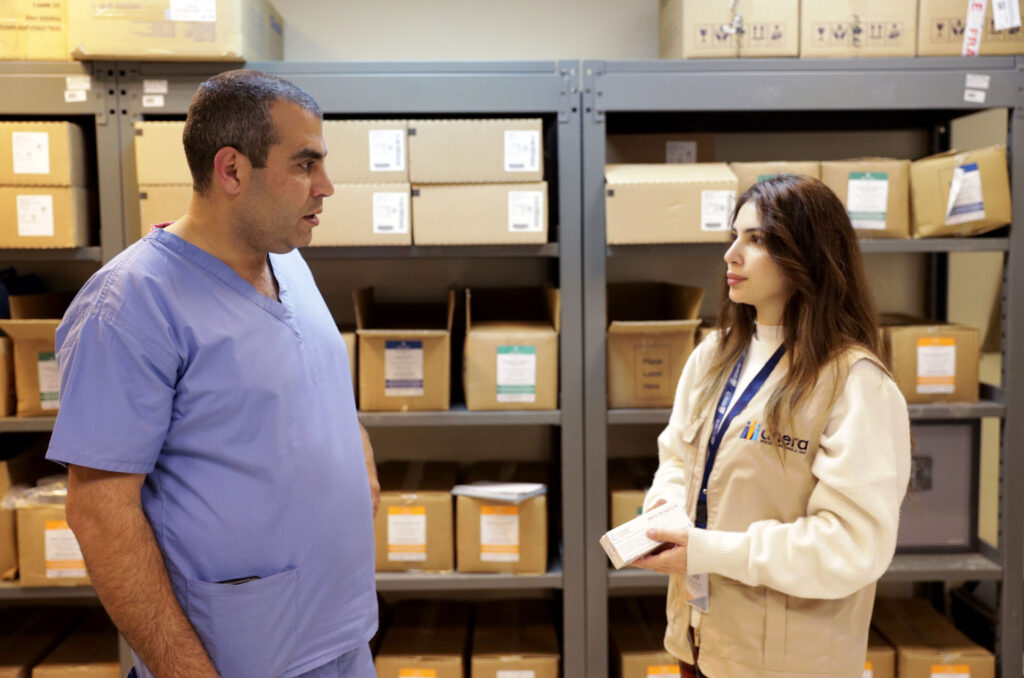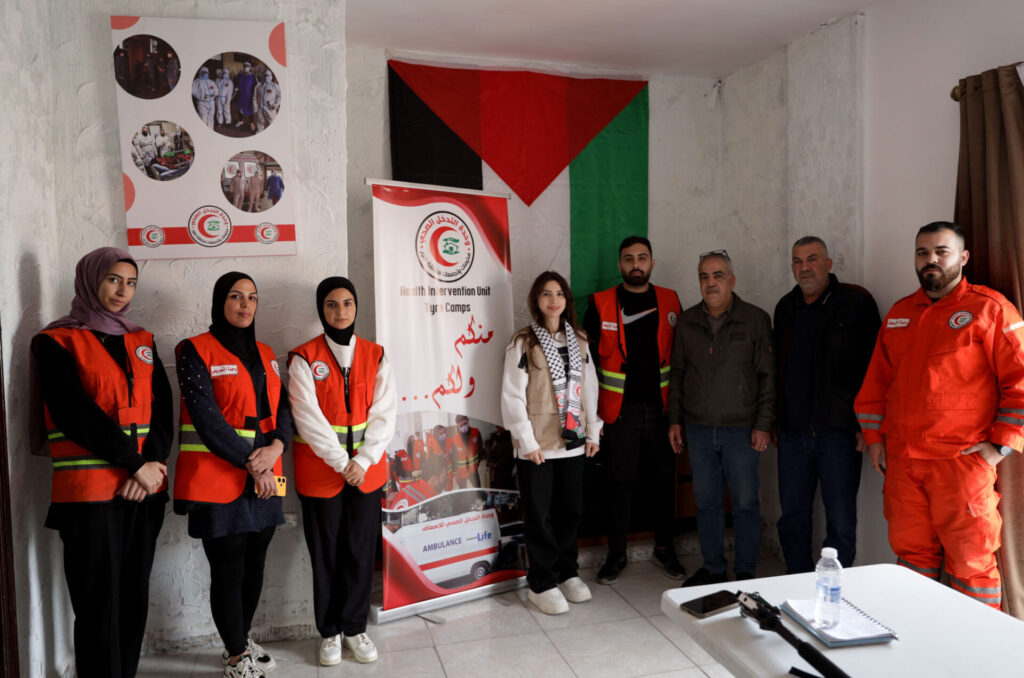Jun, 2020
“Your support keeps us afloat, and quite literally saves the lives of those who otherwise would have to go without life-saving medicine."
Access to Medicine for Seniors in the Bekaa Valley
Kibarouna is a Lebanese NGO dedicated to improving healthcare for older adults. They found that the number one concern of the seniors they work with was accessing affordable and reputable medications. So they launched a medical dispensary in the town of Taanayel, in the Bekaa Valley, relying upon medical donations to stock their inventory.
The staff at Kibarouna believe there is inadequate concern for the comfort and well-being of older people. Older adults are expected to suffer from aches and pains. It is chalked up to just being a part of old age. As a result, their discomfort is often overlooked, even by their own families.
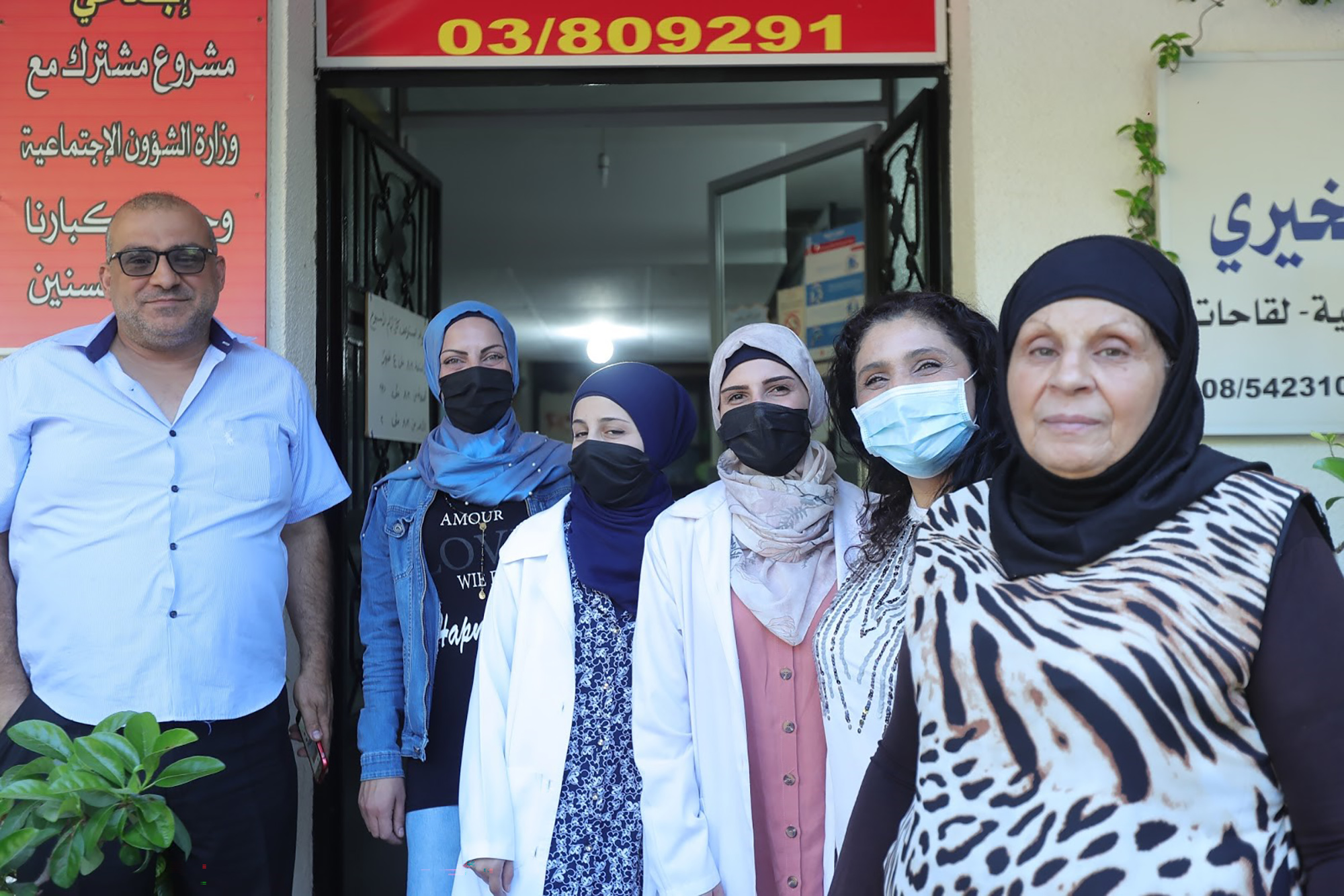

Their pain is even more likely to be ignored if their family lives below the poverty line. In vulnerable families, the immediate needs of children are often prioritized over healthcare for older adults. As a result, self-medication has become normalized.
Maryam Abdul Wahed, the center's administrator, says older adults are pushed to the peripheries of primary healthcare in Lebanon — all the more so during the pandemic and an economic crisis like the one Lebanon is now facing. The issue is structural and cultural.
One of the patients in the waiting room had been taking acetaminophen pills for months in an attempt to ease a headache before coming to the clinic and learning that it was caused by chronic hypertension. Maryam says she sees this sort of thing all the time. Unfortunately, this can mean underlying conditions go undiagnosed. She says,
"As we know, stomach aches coupled with headaches and other ailments are seldom localized issues, they are usually indicators for chronic diseases, especially among the elderly who have experienced stress, trauma and hardships, like the majority of our patients who come from Syria due to the war.”
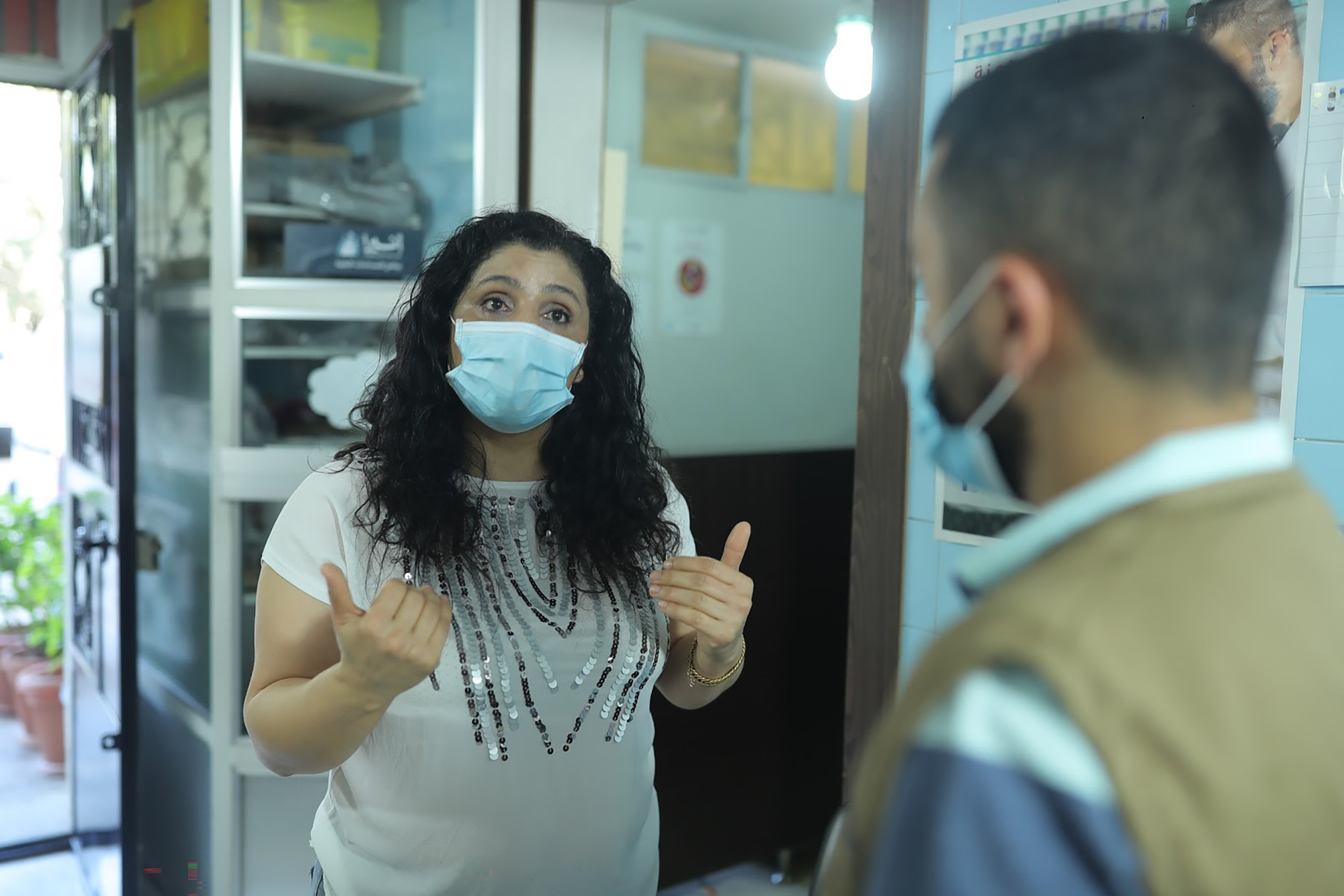

Of the patient above that had been self-medicating with pain killers, Maryam says she,
"came to us because she had severe headaches, and she was feeling body aches. When they gave her a full check up, they realized that she was suffering from hypertension, diabetes and hyperlipidemia (high cholesterol and lipids levels). She was completely oblivious to the fact that she was chronically ill and needs continuous medication.”
Older patients receiving chronic disease medications at the center are relieved and grateful that the medicines they need are available at no charge.
This life-changing access to medicines is possible thanks to our partners at Health Partners International of Canada, who have organized a shipment of more than 90,000 doses of the chronic disease medicine rosuvastatin, 1,842 treatments of the over-the-counter medication famotidine, pediatric electrolytes, and 402 wound care packs.
Famotidine reduces stomach acid production, treating a very common complication among the older adults who visit the dispensary. Rosuvastatin, when coupled with diet and exercise, reduces the risk of heart attack. It can also help prevent the need for open-heart surgery, which many older patients may not survive.
The Kibarouna dispensary has been open for eight years now. Maryam says it has only lasted so long because of partners like Anera and the generosity of donors like HPIC.
"We depend on our donors, especially during such a crisis where even huge private hospitals are complaining about a shortage of medications. A small charity like ourselves would have crumbled without it. Your support keeps us afloat, and quite literally saves the lives of those who otherwise would have to go without life-saving medicine."
Meeting the Patients at the Clinic
Let's meet some of the patients who are currently receiving free-of-charge medication that is improving their lives.
Hamda, 72, is from Al Zabadni, a beautiful neighborhood in the suburbs of Damascus. Before the war, the area was a popular tourist site, thanks to its scenic green spaces. Al Zabadni has suffered greatly from the war and is now a shadow of what it once was.
Before arriving in Lebanon, Hamda experienced unbelievable stress and fear. "This is not who I was a few months ago,” she says.
“If only I knew earlier that my life could change this way. I could barely lift myself out of bed. I am very grateful to you and the doctors, I thought I was nearing death and the care and support from the staff of this center and my new medication have brought me back to life. Thank you."
Fady is from the remote and impoverished town of Arsal, in the far eastern Bekaa Valley, where there is little access to quality healthcare services.
Fady, a father of three boys, has endured more than his share of health problems and retains a remarkable spirit of perseverance. He suffers from hypertension and diabetes and, a few years ago, he fell from a third-story balcony while working as a stone mason at a construction site. He recently endured a stroke which left him with mobility problems.
"That [stroke] was seven months ago — look at me now! I can feel that my body is healing on the inside and I am getting better fast. Despite life's uncontrollable hardships, I can honestly say I feel confident that I will be okay!"
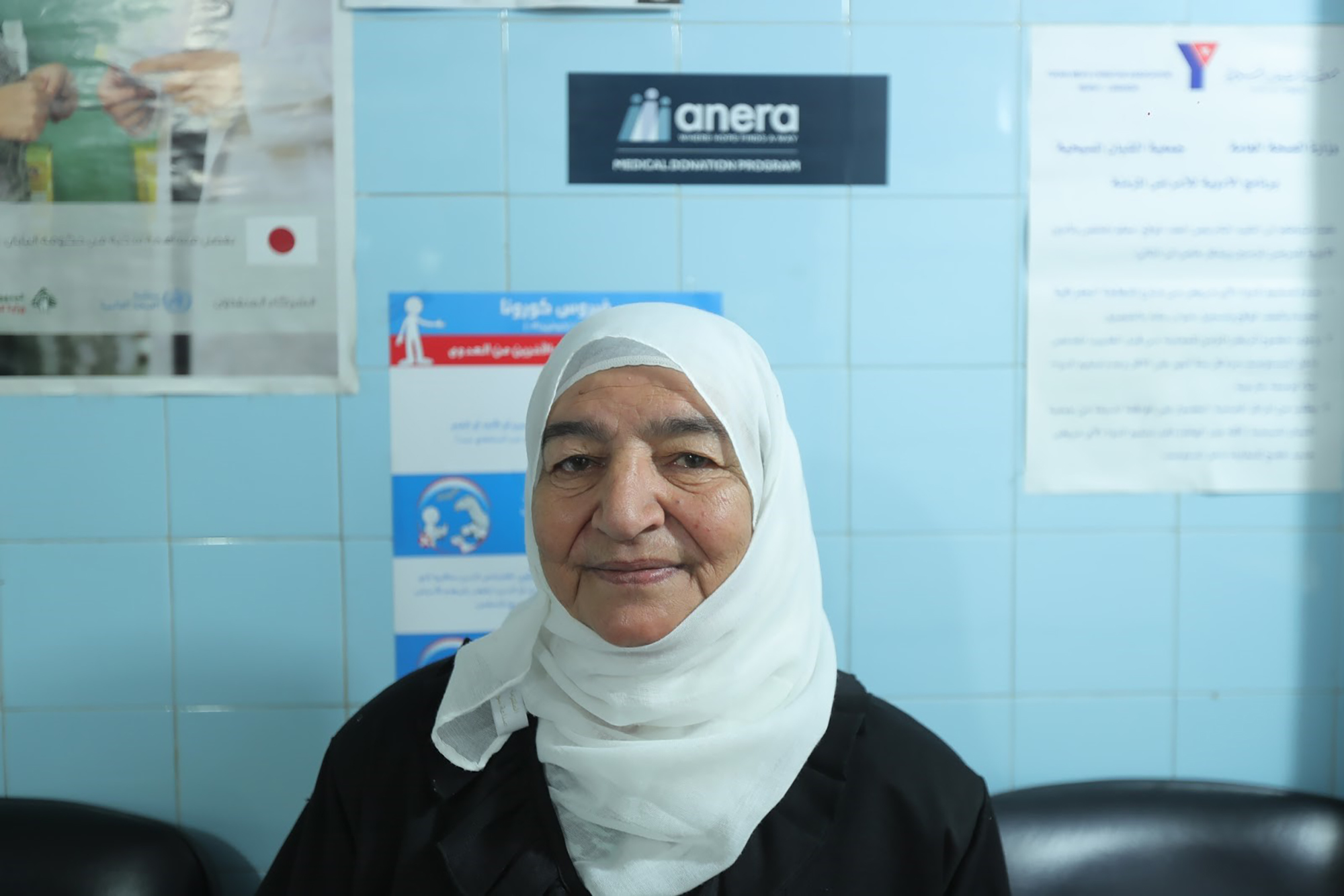

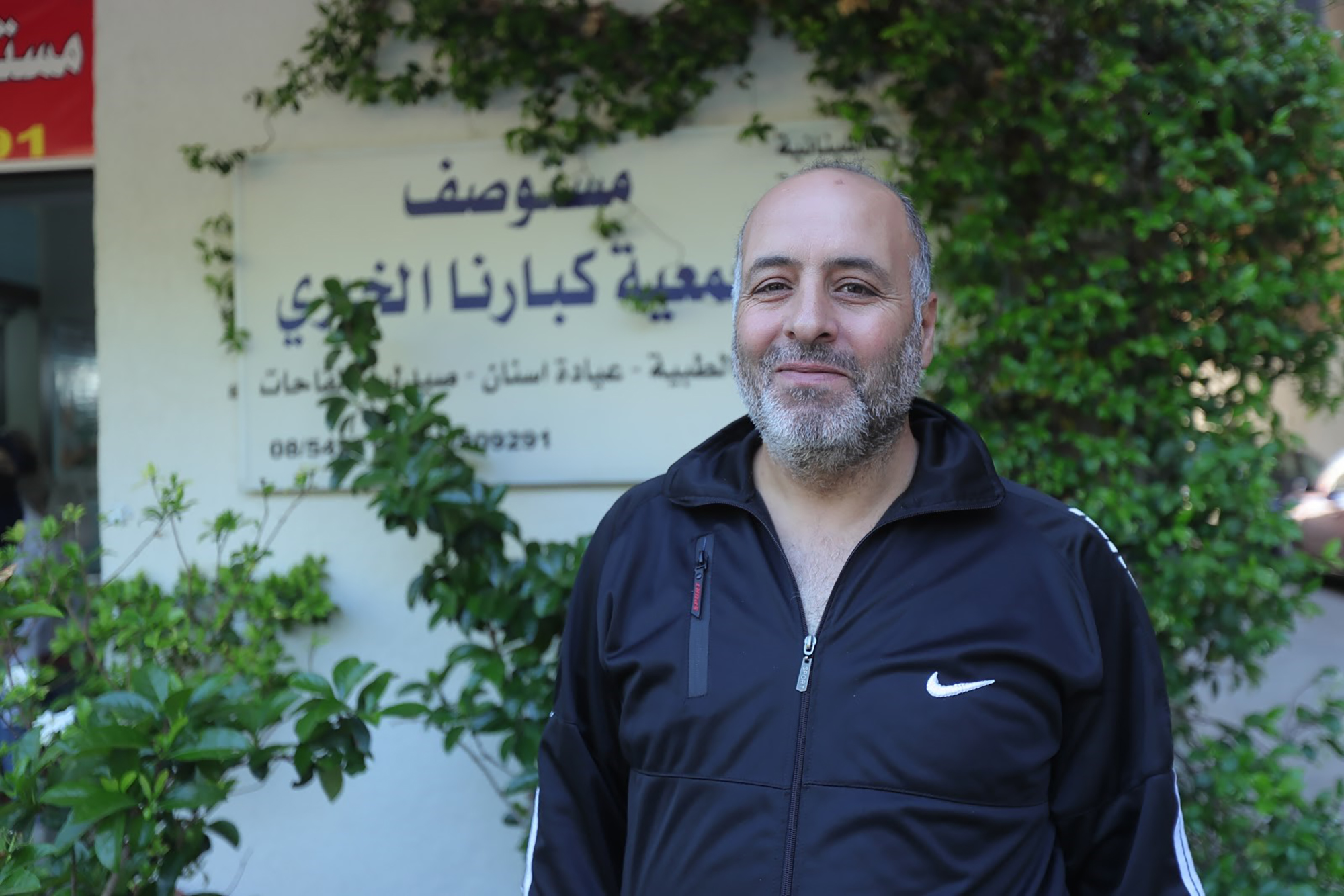

Talk about the power of the human will to live!
Like all of the patients here, Fady is financially vulnerable, particularly in the midst of a national financial crisis which has slowed businesses and construction sites across Lebanon. Fady is the family breadwinner but his eldest boy is helping. His son, now 20, studies during the day and goes to a job in the evenings. The family rations their food consumption.
Fady hopes this is a temporary situation and that, just like his body, the country will stand on its feet again.
"It took me two years of physical therapy to regain my motor skills after my back was broken. Thank God it was not worse than that. I survived and so will my family and my country!"
The third patient we meet is taking both rosuvastatin and famotidine. Nadia, 68, was born in Beirut but now lives with her children in Bekaa. She has hypertension, diabetes, chronic colon inflammation and irritable bowel syndrome. She says,
"I was in constant pain that was only getting worse by the day. Kibarouna's dispensary — may God bless them — has given me the strength to get back on my feet.”
The donated medications distributed by Anera and medical consultations offered by the center allow Nadia to access proper treatment. Nadia's health is crucial not only for her, but also her husband.
“I have to be strong and healthy. I have to care for myself and for my husband, who suffers from Alzheimer's, among many other ailments. He needs constant care as he can barely get out of his bed.”


According to UN OHCHR, “Health is a fundamental human right, indispensable for the exercise of many other rights, in particular the right to development, and necessary for living a life in dignity.” Lebanon is home to a diversity of peoples with different political loyalties, religious sects and ethnic affiliations. Anera is constantly working to promote the realization of the right to health through our partnerships with organizations such as HPIC, and through our inclusive programming, which includes people regardless of their economic, social, cultural, religious or political background.

